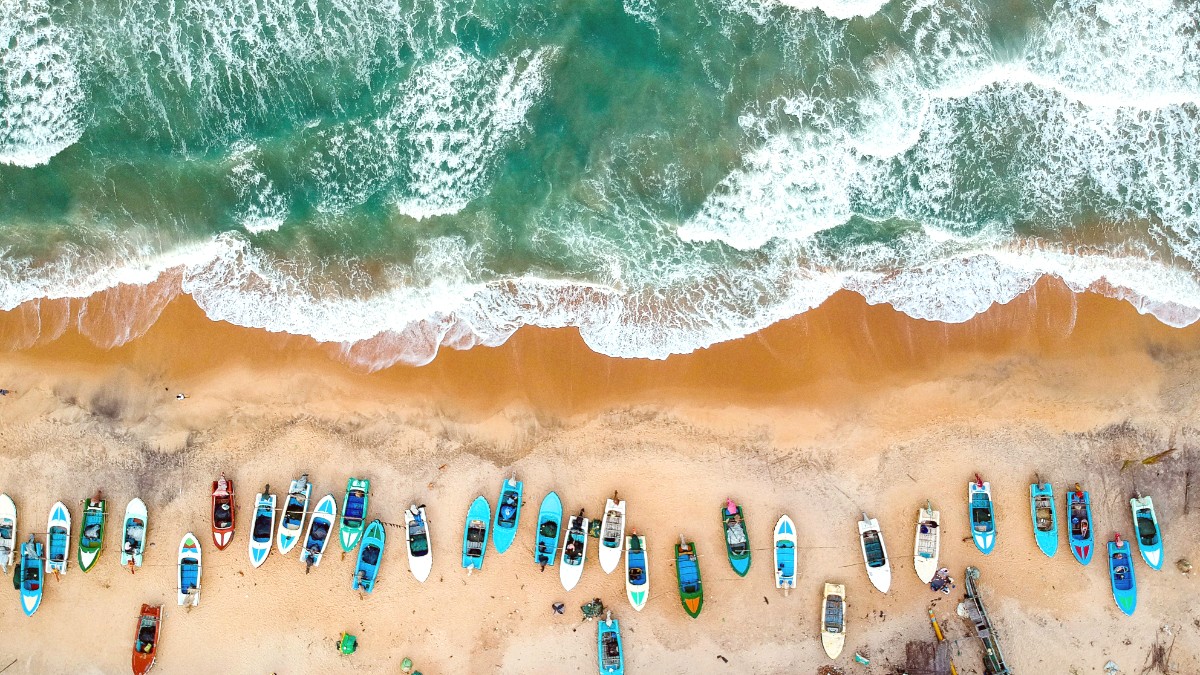
The East, Sri Lanka
The local currency in Sri Lanka is the Rupee (LKR or Rs). Obtain the best exchange rates at banks and authorized money changers located in major cities like Colombo or at Bandaranaike International Airport (CMB). ATMs appear available in Arugam Bay, including branches of Hatton National Bank and Commercial Bank.
Larger hotels, restaurants, and surf shops accept credit cards, but cash comes with preference for guesthouses, tuk-tuk rides, and local eateries.
Tipping is not mandatory in Sri Lanka but welcomed for good service. For restaurants, a 10% tip is common if a service charge is not already included in the bill. For tuk-tuk drivers, it is polite to round up the fare. For tour guides or safari drivers, a tip of LKR 1,000 - 3,000 (US$3-10) per day is a fair amount, based on your satisfaction with their service. For hotel staff like porters or housekeepers, small tips of LKR 100-200 appear appreciated.
Money-Saving Strategies: Eat at local eateries or "rice and curry shops" rather than tourist-focused restaurants. Local food is delicious and much more affordable. Rent a scooter or bicycle for local transport instead of relying solely on tuk-tuks for every short trip. This delivers flexibility and lessens expenses. Negotiate prices for tuk-tuks, rentals, and items without fixed prices. Bargaining forms part of the local culture, but do so respectfully. Stay in guesthouses located slightly further from Main Point. These often feature lower rates compared to those directly on the main strip. Consider traveling during the shoulder season (April, October) for reduced prices and fewer crowds. Purchase a local SIM card upon arrival. This presents affordable communication and mobile data, preventing high international roaming charges. You find generic Prepaid SIM cards for Asia that function well.
Varied lodging options
US$10-20 (LKR 3,000-6,000)
US$200+ (LKR 60,000+)
Culinary variety
US$2-6 (LKR 600-1,800)
US$10-30+ (LKR 3,000-9,000+)
Mobility and experiences
US$5-10 (LKR 1,500-3,000)
US$35-65 (LKR 10,000-20,000)
Traveler's Diarrhea: Drink only bottled or purified water. Avoid ice made from tap water. Consume well-cooked food from reputable establishments. Carry water purification tablets or a filter bottle for emergencies or to diminish plastic waste. Mosquito-borne diseases (Dengue, Chikungunya): Use Insect repellent containing DEET or Picaridin day and night. Sawyer Products Premium Picaridin Insect Repellent represents a good option. Wear long sleeves and pants, particularly at dawn and dusk. Choose accommodations with mosquito nets or air conditioning.
Arugam Bay has basic medical clinics and pharmacies. For serious conditions, a transfer to larger hospitals in Kalmunai or Batticaloa, approximately 1-2 hours drive away, may be needed. Colombo holds the highest standard of medical care in Sri Lanka, with several private hospitals.
The sun in Arugam Bay is strong. Use High SPF reef-safe sunscreen, such as Thinksport Kids SPF 50+ Sunscreen. Wear a Wide-brimmed sun hat. Stay hydrated by drinking plenty of water. Seek shade during peak sun hours, typically between 10 AM and 4 PM.
Be careful when walking on reefs or rocky areas while surfing or swimming. Clean and disinfect any wounds immediately to prevent infection in the humid climate. A small First aid kit is useful for this.
Tap water is generally not safe for drinking. Always use Bottled water. Avoid unpeeled fruits and vegetables, and uncooked foods from street vendors unless you are confident in their hygiene practices. Confirm all food is hot and freshly prepared.
Comprehensive Travel insurance comes with strong recommendation. SafetyWing and Insubuy are options. Confirm your policy covers medical emergencies, emergency evacuation, trip cancellation, and theft of belongings. If you plan to surf or participate in other adventure activities, verify your policy covers these specific activities.
Police: 119, Ambulance/Medical Emergency: 1990 (for Suwa Seriya ambulance service), Fire: 110. Always have your embassy or consulate contact details ready. In an emergency, contact your accommodation host or tour operator for immediate assistance and local guidance.